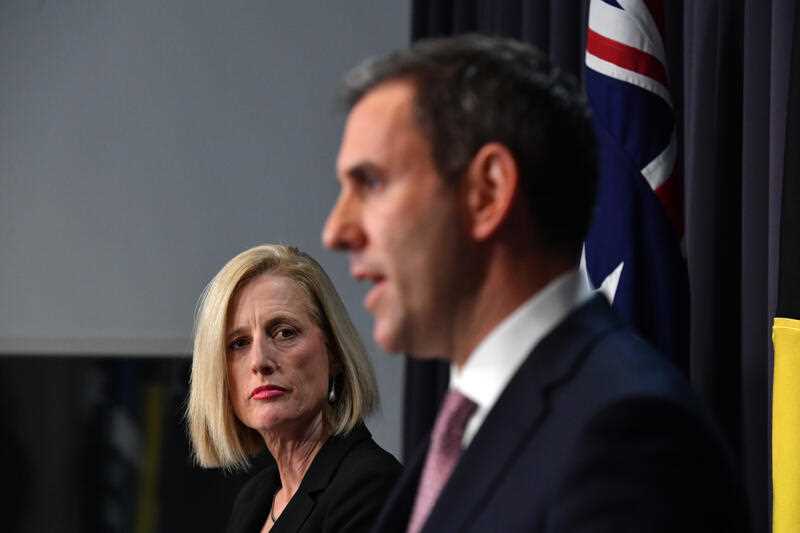The federal government believes itself ready to launch into the difficult task of budget repair after inheriting a structural deficit and record levels of debt.
ACT Senator and Finance Minister Katy Gallagher says Labor has spent its first months delivering on a promise to undertake a deep audit of spending to identify where money can be returned or redirected.
Tuesday’s budget will include over $21 billion in savings and decisions to redirect existing spending, she said.
Examples include the retrieval of $6.5 billion from infrastructure projects to better align the investment with construction market conditions.
A further $3.6 billion will come from slashing expenditure on external labour, advertising, travel and legal costs.
More than $2 billion will be shaved from various grants programs.
“We have responsibly gone through the budget line-by-line and identified savings or re-prioritisations where we can, to begin the task of budget repair or pay for new government priorities,” Senator Gallagher said.
“The former government used taxpayers’ money to cynically buy votes before elections by politicising grants funds and used the budget to land political deals.
“That approach to spending ends in Labor’s first budget.”
Shadow treasurer Angus Taylor said, on the contrary, Labor had been gifted the lowest unemployment rate in decades, economic growth over three per cent and an improving budget bottom line by the coalition.
He said a high-taxing, high-spending Labor budget would only make the Reserve Bank’s job harder and that Treasurer Jim Chalmer’s challenge would be a test of his willingness to put Australians first.
“Budgets are statements of a government’s priorities and … this new Labor government’s true intentions will be exposed,” he said.
“In a rapidly changing economic environment, Labor must use the budget to deliver a coherent plan to deal with the current cost of living crisis which is very real and painful for so many Australian families.”
Mr Taylor urged Dr Chalmers to put downward pressure on inflation and interest rates without increasing taxes and deliver relief to supply side pressures in the economy by increasing productivity and participation.
By Peter Bodkin in Canberra
Get the latest news, sport, entertainment, lifestyle, competitions and more delivered straight to your inbox with the Canberra Daily Daily Newsletter. Sign up here.



